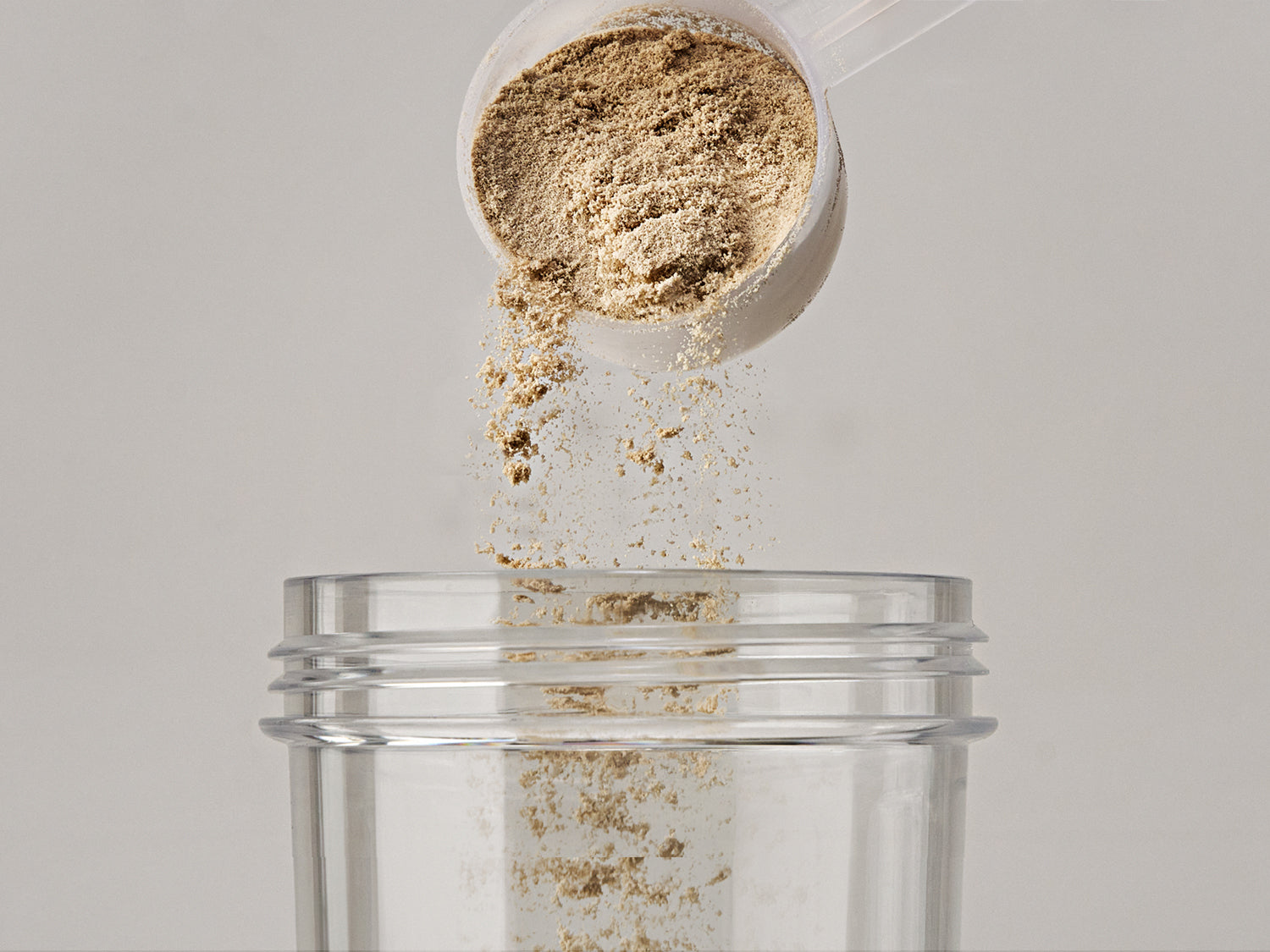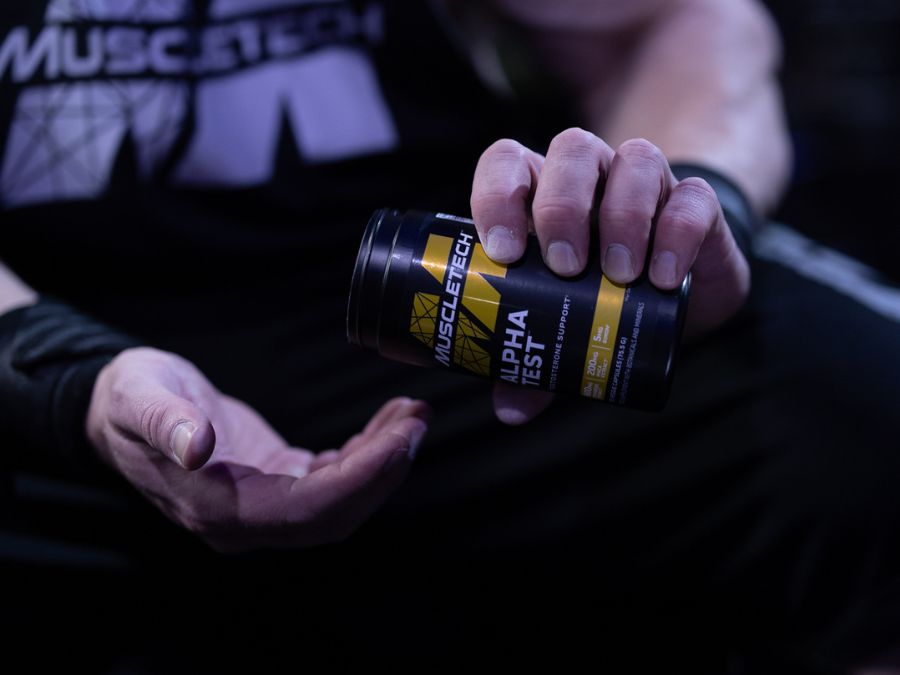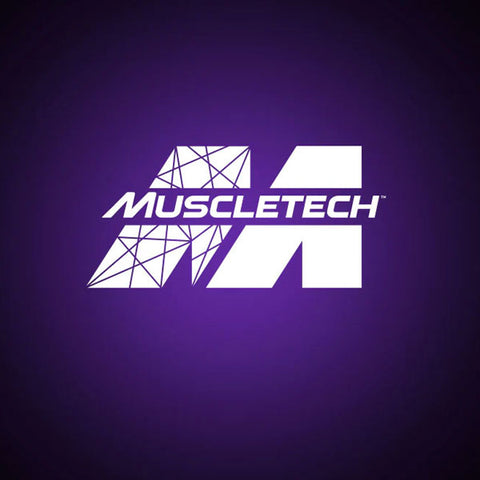In pursuing optimal health and performance, one question frequently arises among fitness enthusiasts and health-conscious individuals: "What food lowers testosterone?" This vital hormone is crucial in various bodily functions, from fat loss and muscle growth to maintaining energy levels and overall well-being.
However, it's alarming to note that those who predominantly consume the "Standard American Diet," characterized by highly processed foods, sugars, and unhealthy fats, often have significantly lower testosterone levels than those on a more balanced, nutrient-rich diet.
Understanding the intricate relationship between diet and hormonal health is essential. This article will explore how certain foods can impact testosterone levels, offering insights for maintaining hormonal balance and peak physical performance.
So, What Food Lowers Testosterone?
Before we jump in, there's one caveat. Nutrition, like so many other things, is an evolving science. With so many studies out there that contradict one another and so many chemicals that can affect testosterone production in innumerable ways, it's tough to know for sure which foods definitely take a toll on your T.
That said, our list of 11 foods includes several that are a slam dunk, and some others that are under suspension. Without further ado, here’s our roster of foods to avoid if you want to maintain high testosterone levels.
Also Read: Discover the Best Testosterone Booster for Males Over 40
#1 - Alcohol
Ok, it’s a drink, not a food. But it’s a testosterone killer. While an occasional drink might not drastically affect your hormones, regular consumption of alcohol, including beer, spirits, or wine, can significantly lower testosterone levels.
Excessive alcohol intake disrupts the function of the hypothalamus, pituitary gland, and testes, impeding the release of GnRH, FSH, LH - hormones that are vital for testosterone production.
A study revealed that healthy males consuming ethanol equivalent to a pint of whiskey daily experienced a drop in testosterone levels within three days, with a substantial decrease after 30 days.
Beyond its impact on testosterone, excessive alcohol use adversely affects the liver, kidneys, and heart. Hence, moderation and responsible drinking are crucial for maintaining hormonal balance and overall health.
#2 - Trans Fats
Trans fats, found in abundance in fast, fried, and processed foods, are a significant threat to hormonal health, including testosterone levels. While naturally occurring in small amounts in meat and dairy, their excessive presence in unhealthy foods poses a risk.
Consuming trans fats is linked to many health issues: cardiovascular disease, inflammation, type 2 diabetes, and a negative impact on cholesterol levels, reducing HDL (good cholesterol) while increasing LDL (bad cholesterol).
Moreover, a high intake of trans fats is associated with decreased fertility and lower testosterone levels, making it crucial to limit their consumption for maintaining optimal hormonal balance and overall health.
#3 - Sugar
Indulging in sugary treats might be sweet, but it can have a bitter effect on your testosterone levels. Americans consume too much sugar, hitting 17 teaspoons daily, almost double the amount recommended by the American Heart Association.
This excessive sugar intake is not only a general health concern but also a hormonal one. Studies have shown that men aged 19 to 74 can experience up to a 25% drop in testosterone levels after consuming sugar, with the effect lasting for two hours.
Furthermore, sugar-sweetened beverages like sodas and energy drinks have been linked to low testosterone levels in 59% of subjects. While challenging, reducing sugar intake is crucial in preserving your testosterone levels and overall health.
#4 - Vegetable Oils
Vegetable oils, commonly used in various foods for enhanced taste, texture, and shelf life, are rich in polyunsaturated fats (PUFAs). While often labeled as "healthy," moderation is key in PUFA consumption. These oils, including canola, coconut, corn, cottonseed, and others, are so prevalent in cooking that it's easy to overindulge.
Studies have linked high PUFA intake to lower testosterone levels in men, with one 2019 report indicating a decrease in testosterone in overweight, hypogonadal men within an hour of consumption.
Additionally, omega-6 fatty acids, abundant in vegetable oils and certain nuts and seeds, while beneficial in moderation, can adversely affect testosterone production and testicular function when consumed excessively. The balance between omega-6 and the healthier omega-3 fatty acids is crucial for maintaining hormonal health and reducing inflammation.
#5 - Baked Goods
While freshly baked cookies or bread might be tempting, many of these delights are high in trans fats, which are known for their detrimental effect on testosterone levels. As we mentioned above, individuals consuming a diet rich in trans fats had testosterone levels approximately 15% lower than those with minimal intake.
#6 - Soy
Soy products, including edamame, tofu, soy milk, tempeh, and soy protein powder, are often praised for their high fiber and protein content, along with being cholesterol- and lactose-free. However, they also contain phytoestrogen isoflavones, compounds similar to estrogen, which may impact testosterone levels.
Phytoestrogens can activate estrogen receptors while potentially decreasing the activity of androgen receptors, where testosterone binds. This could hinder testosterone’s effectiveness in the body.
The medical community is divided on soy. A 2013 study observed lower testosterone levels in men consuming soy protein isolate, whereas a 2010 meta-analysis found no significant hormonal effects. Given these mixed results, moderating soy intake could be a prudent approach if maintaining optimal testosterone levels is a concern.
#7 - Nuts
While nuts are celebrated for their healthy fats and minerals, certain types, particularly those high in polyunsaturated fatty acids (PUFAs) like walnuts, pistachios, peanuts, pecans, and almonds, may negatively impact testosterone levels. Studies suggest these nuts can cause oxidative stress in storage tissues, leading to lower testosterone.
However, for nut enthusiasts, there are healthier options. Nuts such as Brazil nuts, chestnuts, and macadamia nuts are nutrient-dense and rich in cholesterol-friendly and heart-healthy monounsaturated fatty acids (MUFAs). Opting for these varieties can offer the nutritional benefits of nuts while minimizing potential hormonal disruptions.
#8 - Flaxseed
Flaxseed is known for its health benefits, including improving cholesterol, aiding digestion, and reducing blood pressure. However, high consumption can adversely affect testosterone levels. Rich in dietary lignans, flaxseed can reduce both total and free testosterone levels and inhibit the conversion of testosterone into dihydrotestosterone, a crucial androgen.
A study involving 25 men with prostate cancer on a low-fat diet supplemented with flaxseed showed significant declines in their testosterone levels. Furthermore, flaxseed's high omega-3 fatty acid content, while generally healthier than omega-6, can also lead to reduced testosterone levels when consumed in excess.
Therefore, while flaxseed offers various health advantages, its impact on testosterone warrants mindful consumption.
#9 - Mint
Mint, including spearmint and peppermint, is often praised for its soothing properties for stress and digestive issues and its ability to freshen breath. However, its effects on male hormones might be less refreshing.
Animal studies have shown that testosterone levels in rats given peppermint or spearmint tea decreased compared to those drinking plain water. Spearmint was also observed to induce oxidative stress in rats, leading to reduced testosterone levels.
While more research, especially on human subjects, is necessary to confirm these findings, those concerned about testosterone might want to explore alternatives. Ginger tea, for instance, is a great option, known for its potential to boost testosterone production.
#10 - Licorice Root
Licorice root, commonly used as an herbal supplement, tea ingredient, or natural sweetener, differs significantly from the licorice candy often found in stores. Its impact on men's hormonal health, however, raises concerns.
A study focusing on licorice root's effects on testosterone revealed a significant decrease in the hormone's levels. Men who ingested 7 grams of licorice root every day experienced a dramatic 26 percent drop in testosterone levels after just one week.
This finding suggests that while licorice root may have various uses and benefits, its potential influence on testosterone levels warrants caution, especially for those mindful of maintaining hormonal balance.
How to Maintain High Testosterone Levels Naturally
Maintaining high testosterone levels is not just about avoiding certain foods; it's about embracing a holistic lifestyle approach. Regular physical activity, particularly strength training and high-intensity interval training (HIIT), is crucial for naturally boosting testosterone.
Adequate sleep is another critical factor; aim for 7 to 9 hours of good sleep every night to support hormonal balance. Stress management also plays a significant role; too much stress boosts cortisol production, which can adversely affect testosterone.
A solid diet of lean proteins, healthy fats, and antioxidants is essential. Foods like eggs, lean meat, fatty fish, and leafy greens can support testosterone production.
In addition, keeping a healthy weight and avoiding obesity is essential, as excess body fat can lead to decreased testosterone levels. Incorporating these lifestyle changes can significantly impact your testosterone levels and overall well-being.
MuscleTech Supplements for High Testosterone
Enhancing your diet and lifestyle with the right supplements can be a game-changer in maintaining high testosterone levels. MuscleTech offers a range of products specifically formulated to support and boost testosterone, ensuring you get the most out of your fitness and health regimen:
A potent formula that supports testosterone production and overall male health. AlphaTest is designed to increase free testosterone levels within days of use and maintain peak testosterone-to-cortisol ratio.
Combining the benefits of testosterone support with a thermogenic component, Alpha Test Thermo is the ideal supplement for those looking to boost both testosterone and metabolic rate.
This supplement harnesses the power of naturally derived testosterone boosters. Test HD requires no cycling and is formulated to increase total testosterone levels, enhancing muscle building.
Test HD Elite goes a step further, designed for those seeking an elite edge. It helps increase testosterone levels and improve muscle strength.
Specifically tailored for nighttime use, MuscleBuilder PM works while you sleep. It supports the body’s natural testosterone production and muscle recovery, making it an essential part of any post-workout routine.
Each of these MuscleTech products is crafted with precision and backed by science, ensuring you're not just meeting your fitness goals, but exceeding them with trusted testosterone-boosting supplements.
Healthy Lifestyle, MuscleTech Supplements
Understanding what food lowers testosterone is vital in the quest for optimal hormonal health. You can naturally balance your hormones by choosing testosterone-boosting foods and adopting healthy habits like exercising, getting enough sleep, and managing stress.
MuscleTech's targeted supplements are designed to complement these lifestyle choices and amplify your testosterone levels. It's a journey of informed decisions and consistent actions.
With dedication and the proper support, you'll not only elevate your hormonal health but also enhance your vitality and overall quality of life.
Read Our Top Blogs:
Disclaimer
The links used in this article are being provided as a convenience and for informational purposes only; they do not constitute an endorsement or an approval by Iovate Health Sciences International Inc. or any of its affiliates (“Iovate”) of any of the products, services or opinions of the corporation or organization or individual. Iovate bears no responsibility for the accuracy, legality or content of the external site or for that of subsequent links. Contact the external site for answers to questions regarding its content.
References
- Akdogan, M., Ozguner, M., Kocak, A., Oncu, M., & Cicek, E. (2004). Effects of peppermint teas on plasma testosterone, follicle-stimulating hormone, and luteinizing hormone levels and testicular tissue in rats. Urology, 64(2), 394-398. https://doi.org/10.1016/j.urology.2004.03.046
- Armanini, D., Bonanni, G., Mattarello, M. J., Fiore, C., Sartorato, P., & Palermo, M. (2003). Licorice consumption and serum testosterone in healthy man. Experimental and clinical endocrinology & diabetes : official journal, German Society of Endocrinology [and] German Diabetes Association, 111(6), 341–343. https://doi.org/10.1055/s-2003-42724
- Banihani S. A. (2018). Ginger and Testosterone. Biomolecules, 8(4), 119. https://doi.org/10.3390/biom8040119
- Brownlee, K. K., Moore, A. W., & Hackney, A. C. (2005). Relationship between circulating cortisol and testosterone: influence of physical exercise. Journal of sports science & medicine, 4(1), 76–83.
- Caronia, L. M., Dwyer, A. A., Hayden, D., Amati, F., Pitteloud, N., & Hayes, F. J. (2013). Abrupt decrease in serum testosterone levels after an oral glucose load in men: implications for screening for hypogonadism. Clinical Endocrinology, 78(2), 291-296. https://doi.org/10.1111/j.1365-2265.2012.04486.x
- Chavarro, J. E., Mínguez-Alarcón, L., Mendiola, J., Cutillas-Tolín, A., López-Espín, J. J., & Torres-Cantero, A. M. (2014). Trans fatty acid intake is inversely related to total sperm count in young healthy men. Human reproduction (Oxford, England), 29(3), 429–440. https://doi.org/10.1093/humrep/det464
- Chen, L., Xie, Y. M., Pei, J. H., et al. (2018). Sugar-sweetened beverage intake and serum testosterone levels in adult males 20–39 years old in the United States. Reproductive Biology and Endocrinology, 16(1), 61. https://doi.org/10.1186/s12958-018-0378-2
- Demark-Wahnefried, W., Polascik, T. J., George, S. L., Switzer, B. R., Madden, J. F., Ruffin, M. T., 4th, Snyder, D. C., Owzar, K., Hars, V., Albala, D. M., Walther, P. J., Robertson, C. N., Moul, J. W., Dunn, B. K., Brenner, D., Minasian, L., Stella, P., & Vollmer, R. T. (2008). Flaxseed supplementation (not dietary fat restriction) reduces prostate cancer proliferation rates in men presurgery. Cancer epidemiology, biomarkers & prevention : a publication of the American Association for Cancer Research, cosponsored by the American Society of Preventive Oncology, 17(12), 3577–3587. https://doi.org/10.1158/1055-9965.EPI-08-0008
- Demark-Wahnefried, W., Price, D. T., Polascik, T. J., Robertson, C. N., Anderson, E. E., Paulson, D. F., Walther, P. J., Gannon, M., & Vollmer, R. T. (2001). Pilot study of dietary fat restriction and flaxseed supplementation in men with prostate cancer before surgery: exploring the effects on hormonal levels, prostate-specific antigen, and histopathologic features. Urology, 58(1), 47–52. https://doi.org/10.1016/s0090-4295(01)01014-7
- Duca, Y., Aversa, A., Condorelli, R. A., Calogero, A. E., & La Vignera, S. (2019). Substance Abuse and Male Hypogonadism. Journal of clinical medicine, 8(5), 732. https://doi.org/10.3390/jcm8050732
- Emanuele, M. A., & Emanuele, N. V. (1998). Alcohol's effects on male reproduction. Alcohol health and research world, 22(3), 195–201.
- Hamilton-Reeves, J. M., et al. (2010). Clinical studies show no effects of soy protein or isoflavones on reproductive hormones in men: results of a meta-analysis. Fertility and Sterility, 94(3), 997-1007.
- Kalgaonkar, S., Almario, R. U., Gurusinghe, D., Garamendi, E. M., Buchan, W., Kim, K., & Karakas, S. E. (2011). Differential effects of walnuts vs almonds on improving metabolic and endocrine parameters in PCOS. European journal of clinical nutrition, 65(3), 386–393. https://doi.org/10.1038/ejcn.2010.266
- Kraemer, W. J., Solomon-Hill, G., Volk, B. M., Kupchak, B. R., Looney, D. P., Dunn-Lewis, C., Comstock, B. A., Szivak, T. K., Hooper, D. R., Flanagan, S. D., Maresh, C. M., & Volek, J. S. (2013). The effects of soy and whey protein supplementation on acute hormonal reponses to resistance exercise in men. Journal of the American College of Nutrition, 32(1), 66–74. https://doi.org/10.1080/07315724.2013.770648
- Leproult, R., & Van Cauter, E. (2011). Effect of 1 week of sleep restriction on testosterone levels in young healthy men. JAMA, 305(21), 2173–2174. https://doi.org/10.1001/jama.2011.710
- Maruyama, K., Oshima, T., & Ohyama, K. (2010). Exposure to exogenous estrogen through intake of commercial milk produced from pregnant cows. Pediatrics international : official journal of the Japan Pediatric Society, 52(1), 33–38. https://doi.org/10.1111/j.1442-200X.2009.02890.x
- MInguez-Alarcón, L., Chavarro, J. E., Mendiola, J., Roca, M., Tanrikut, C., Vioque, J., Jørgensen, N., & Torres-Cantero, A. M. (2017). Fatty acid intake in relation to reproductive hormones and testicular volume among young healthy men. Asian journal of andrology, 19(2), 184–190. https://doi.org/10.4103/1008-682X.190323
- Nadjarzadeh, A., Dehghani Firouzabadi, R., Vaziri, N., Daneshbodi, H., Lotfi, M. H., & Mozaffari-Khosravi, H. (2013). The effect of omega-3 supplementation on androgen profile and menstrual status in women with polycystic ovary syndrome: A randomized clinical trial. Iranian journal of reproductive medicine, 11(8), 665–672.
- Nassan FL, Jensen TK, Priskorn L, Halldorsson TI, Chavarro JE, Jørgensen N. Association of Dietary Patterns With Testicular Function in Young Danish Men. JAMA Netw Open. 2020;3(2):e1921610. doi:10.1001/jamanetworkopen.2019.21610
- Pearce, K. L., & Tremellen, K. (2019). The Effect of Macronutrients on Reproductive Hormones in Overweight and Obese Men: A Pilot Study. Nutrients, 11(12), 3059. https://doi.org/10.3390/nu11123059
- Vingren, J. L., Kraemer, W. J., Ratamess, N. A., et al. (2010). Testosterone physiology in resistance exercise and training. Sports Medicine, 40(12), 1037–1053. https://doi.org/10.2165/11536910-000000000-00000




